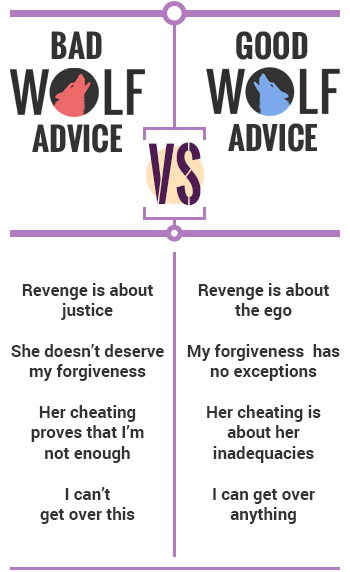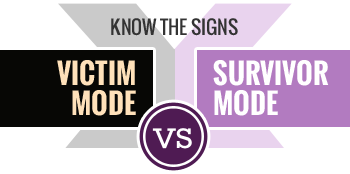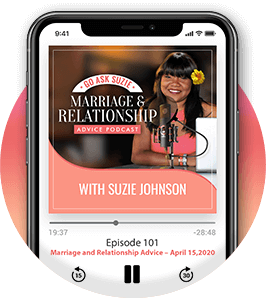Nothing blindsides a man like the discovery of his wife’s infidelity.
Knowing how to survive your wife’s affair is one of the hardest things you will ever face. Because nothing blindsides a man more than the discovery of her infidelity. And once that happens, he basically has two choices: He can let it drag him down into the depths of emotional despair and waste the next couple of years feeling like a victim, or he can learn how to think and swim like a survivor, turning the tide to his advantage. This article is written for betrayed men who choose to be survivors. Here, I am going to be sharing 5 key affair survival insights — that will show you how to sharpen your betrayal survival coping skills and help you jumpstart your emotional healing and affair recovery process.
You will know not only how to survive this, but how to do so with all of your masculinity, pride, and self-respect intact. If that sounds helpful, then this article if for you. As usual, you can use the menu to go to a particular section, or you can read along at your own pace. I hope you find it helpful.
In my opinion…
the 1967 Shelby Cobra 427 roadster is one of the most beautiful cars ever built. It has the sleek elegance of an English Rose and the brute force dominance of American muscle under the hood.
 The supermodel of cars
The supermodel of cars
Now, if you own one of these cars (reproduction or not), you’re bound to get some looks because like dating a supermodel, driving a Shelby Cobra is a real attention-getter.
But don’t be fooled by her beauty. When it comes to driving this car, she’s a beast. In fact, the Shelby Cobra has a well-earned reputation as one of the most difficult (and dangerous) cars to drive. It’s street-legal but not driver-friendly.
There have been numerous instances where celebrities (Bill Cosby, for example) found out the hard way that they were unable to handle the car.
Why so difficult?
What makes the Shelby Cobra 427 so difficult for the average driver to handle? Well, a few things come to mind. It could be because the car’s designer, Carroll Shelby, spent a large portion of his life as a race car driver. Therefore, he didn’t think like the average driver.
Another reason
Another reason could be because the car has abnormally heavy wheels. As you throttle through the corner, the rear wheels are spinning much faster than the car is moving. Not a lot of everyday drivers know how to handle a car that corners like that.
Or could it be?
Or maybe it’s because the Cobra requires constant attention, constant correction, and constant awareness. And for the average guy, handling the steering takes two hands, the pedal takes both feet, and shifting the gears from notch to notch takes quite a bit of muscle. So, it could be that some guys just don’t have the mental and physical energy to handle all that.
It could be any one of (or all) of the above.
Of course, you could easily point to any one of these reasons (and many others) to explain why the car has been rumored to kill a high percentage of those who have dared to drive it.
However…
I secretly believe a lot of it comes down to this: perfect shifting. Why? Because, when it comes to handling the Shelby Cobra 427, it’s not enough to know how to shift… you must know when to shift.
What is perfect shifting?
Perfect shifting is a combination of timing, awareness, and skill, and mastering the Shelby Cobra 427 (and any other powerful cars) comes down to your ability to respond, adjust, and shift at the right times. Alas, many of us never went to race car driving school to learn how to execute this with ease.
What does all this have to do with you? (Quite a bit, actually.)
Although surviving her affair is not the same as surviving a road trip in a Cobra 427, some of the same skills apply.
Here’s what I mean:
If you are anything like my private clients, then chances are her betrayal was something you never saw coming, and so you were blindsided by it because just like how nobody expects the Spanish inquisition, no man ever expects to deal with the pain of his wife’s betrayal.
And what’s more…
The unbelievability that something like this could have happened right under your nose leaves you feeling foolish, naive, taken advantage of and victimized.
So far, this all makes sense.
And I am sure from the moment you uncovered her deception… there have been many times when you were tempted to curl up into a ball, ignore work, ignore the kids, and stay in bed all day feeling sorry for yourself.
And who could blame you?
And yet, the fact that you are here and reading an article like this… also suggests that there must also be another part of yourself that wouldn’t allow you to do that.
And I admire that.
So, talk about exactly what you are going to need to be able to not only survive this but also survive it with your self-respect intact.
And to do that, I am going to make the case that the same things you need to survive driving a Shelby Cobra 427 are the same thing you will need to survive her affair.
Surviving her affair is like surviving the Shelby Cobra 427
In a way, we could say surviving her affair is like surviving the Shelby Cobra 427 because they both require you to respond, adjust, and shift at the right times.
And to help you do that…
I have put together four key survival insights that when learned (and integrated), give you the power to not only survive the pain but also to master the situation in such a way that you will be able to turn the tides to your favor. Ready? Let’s get to it.


KNOW THAT RESPONDING AND REACTING ARE NOT THE SAME
Here’s something you might find interesting.
If you were to ever find yourself sinking in quicksand, and you reacted from gut instinct, then chances are you won’t make it out alive.
Why?
Because the two most common gut reactions to sinking in quicksand are:
- They panic
- They struggle to get out.
Both of these reactions are the exact wrong things to do in order to survive.
Here’s the thing.
Quicksand is actually a combination of sand and water, so in order to survive, you’ll need to relax and allow your body to float to the surface.
Sounds counterintuitive, doesn’t it?
And yet that’s exactly what you would need to do in order to survive that type of experience. But what if you didn’t have that type of education? (That thought is too painful to entertain.)
Good news!
Since it’s highly unlikely you’ll ever get trapped in quicksand, you don’t have to worry about your instincts failing you. (thank goodness)
However…
When it comes to surviving her infidelity, a similar rule applies because relying on instincts might not be enough to get you through.
Am I saying following your gut instincts is wrong?
No, that’s not what I’m saying. What I’m saying is, if your gut instincts haven’t been educated about how to handle a specific type of situation, then chances are they can do you more harm than good.
 Reality Check
Reality Check
Sometimes what you need to do in order to survive is counterintuitive to what is instinctive. And under certain circumstances, survival is the ability to respond appropriately, not react instinctively. (Surviving her affair is one of these times).
 Key Survival Insight
Key Survival Insight
Surviving is about responding appropriately instead of reacting instinctively.
Here’s an example of what I am talking about.
When a man makes a discovery of this type, there’s no doubt it’s going to unleash an avalanche of emotional pain into his life. Sometimes that pain can feel overwhelming. And what is our instinctive reaction to emotional pain? To do whatever it takes to make it go away as soon as possible.
What is a man’s normal gut reaction to emotional pain?
They either bury it, suppress it, or repress it.
What’s the problem here? Burying emotional pain doesn’t heal it. It only puts it in the background. And what’s more? Pain is like a vampire — even if you bury it, it tends to rise again, sometimes showing up in ways that you least expect it.
![]()
If you want to survive this type of pain, the appropriate thing to do is to learn how to process it instead… and not bury it. For that, you are going to need to override your gut instincts to bury, suppress or avoid dealing with the pain her betrayal has created.

Surviving is a matter of strategy, not luck.
Do you believe in lady luck?
For example, do you have a lucky pair of socks that you wear on days you have a big meeting or need to close a deal?

If so, you are in good company because Michael Jordan and many other elite athletes also believe in Lady Luck.
In fact, Michael was known to wear his “University of North Carolina” shorts under his uniform in every game. Why? Because he firmly believed his lucky underwear brought him luck.
Did it work?
Was it because he was wearing his lucky underpants why Michael Jordan was able to lead the Chicago Bulls to six NBA championships and then on to become the greatest basketball player of all time?
I am not so convinced. I am more inclined to believe skill and strategy had more to do with his success than his lucky underpants.
And the same goes in your situation.
 Key Survival Insight
Key Survival Insight
Your survival is not a matter of luck; it’s a matter of strategy.
Think about it like this:
Let’s say your car breaks down, and you take it to your mechanic. Right away, he is able to diagnose the problem and correctly identify how, when and why the problem occurred. But as nice as all that is, if he doesn’t have the tools and the right skills to fix the car… he wouldn’t be very helpful.
Surviving the hurt and the headache that emerge after this type of disillusionment works the same way.
It’s not a matter of luck; it’s a matter of having the right tools and using the right strategies to get you past the pain.
Notice I said “right strategies”. Because when it comes to surviving her affair, not just any type of strategy will do. It will take situation-specific strategies.
Am I suggesting…
You approach your broken heart the same way a mechanic approaches a broken car? Yes, that’s exactly what I am suggesting.
Up next are two such strategies to help you get the ball rolling.
2 Situation-Specific Strategies for healing the hurt caused by Your Wife's affair
Healing Strategy 1: Embrace a Growth Mindset.
In my opinion, embracing a growth mindset is one of the basic fundamentals for overcoming any type of adversity, including this one. If you’re not sure what that means, then I highly suggest you read (or re-read) the book, “Mindset – The New Psychology of Success” by Carol Dweck, Ph.D., or watch her TedTalk.
Healing Strategy 2: Process Your Pain on Paper.
Remember earlier I told you that we’re going to have to override your reactive instincts to bury, suppress, or avoid the pain this has unleashed? Well, one way to override those instincts is by processing your pain on paper rather than burying it in the basement of your mind. Starting today, begin journaling about the pain. Even if you do it for only 10 minutes a day, it will make a big difference.

Only Feed the Good Wolf
In the aftermath of an incredible injustice done to his people, an old Cherokee chief told his granddaughter that he felt like there was a fight between two wolves going on inside of him. One wolf was hostile, filled with hate, anger, resentment, superiority, and ego; the other wolf was filled with goodness, love, peace, hope, compassion, and faith. His granddaughter thought about this for a moment, and then she asked him, “Grandfather, which wolf wins?” The old Cherokee replied, “The one I feed.”
And just like the Cherokee chief, from the moment you uncovered the treachery, you might have noticed how there seem to be two wolves fighting inside of you as well.

The Two Wolves inside Every Man




The first wolf is hostile. This represents that part of you that is filled with rage at being played like a fool. It’s the part of you that’s filled with resentment at being lied to. It’s the part of you that gets enraged with anger at having been manipulated.
You can just imagine this wolf — its eyes narrowed down to slits, large predatory teeth bared, saliva dripping from its mouth as thoughts of revenge, retaliation, punishment, and settling the score fires up its blood. We call this wolf the “bad” wolf.
The second wolf is much different.
It’s the softer side of you. This wolf represents that part of you (although hurt), does not hate… (although disappointed), is not devastated… (and although unhappy), does not despair.
You can imagine this wolf — it’s prowling back and forth, looking for a way out. It sees the injustice, but it is not focused on getting revenge. It is focused on restitution, repair, and recovery.
For this wolf, thoughts of overcoming and finding a way to free himself are what fires his blood. We call this wolf the “good” wolf.
What It Means
The metaphor of the two wolves is symbolic of the fact that when faced with injustice or unwarranted pain and unfairness, like infidelity, there are two ways of coping with the situation.
One way takes you toward surviving, healing, and recovery, (the shortest road) and the other way takes you deeper into pain and suffering (the long-suffering road).
Which wolf will you feed?
This is the question every man must ask himself.
Because which wolf you feed determines 2 key things: how long it takes you to fully recover, and what type of man you become once it’s all over.
Your Recovery Time
- Feed the bad wolf and he takes you down the Long suffering road to recovery
- Feed the good wolf and He takes down the shortest road to recovery
Your Identity
Feed the bad wolf: You emerge a bitter man.
Feed the good wolf: You emerge a better man.
If the last thing you want is to suffer a any longer than necessary (with a hurt you know you didn’t deserve), then I strongly suggest you only feed the good wolf.
 Key Survival Insight
Key Survival Insight
You must stay vigilant and only ever feed the good wolf.
The thing to know is this.
You cannot feed both. You must choose, and to choose one is to reject the other. That’s because like oil and water, the two don’t mix.
So, what exactly do I mean by “feeding the good wolf”?
Another good question.
When I talk about feeding the good wolf within, what I mean is for you to become intentional about only listening to and following the advice that comes from higher parts of yourself (the good wolf) and avoiding/disregarding the advice from the lower parts of your mind (the bad wolf).
Notice… I am asking you to be intentional about listening to and following the higher voice within your mind.
The reason I use that word is because when we are hurt, the voices for the darker parts of the mind tend to be loud, and so you have to make a deliberate effort to hear the softer, quieter voice for the higher self.
Let me give you some examples of what I am talking about.

Revenge is about justice
She doesn’t deserve my forgiveness
Her cheating is proof that I’m not enough
I can’t ever get over this
Revenge is about the ego
My forgiveness has no exceptions
Her cheating is about her inadequacies
I can get through anything

Perhaps the best reason to only feed the good wolf is this.
Only feeding the good wolf within yourself is what will make the adjustment from feeling like a victim to feeling like a survivor.
My hope for you?
I hope you’ll make that adjustment sooner, rather than later.

Shift Gears Sooner Rather than later
When we get blindsided by any type of negative event, the mind tends to drop into one of two modes: Victim mode or the Survivor mode.
And it’s normal, if not expected, that most guys are going to fall into that victim mode, especially in the initial days after discovery.
However, falling into victim mode after being blindsided by the deceit of this magnitude is not the real problem.
So, what is the real problem then?
The real problem is the failure to shift out of that mode.
You see, it’s not the initial feeling of being victimized that creates problems. The real problems start if and when you allow a temporary of feeling like a victim to turn into believing you are a victim.
 Reality Check
Reality Check
There’s a difference between what something “feels like” and what it actually is. For example, a panic attack can feel like a heart attack, but that doesn’t make it so.
And what’s more…
The longer you stay in victim mode, the higher your risk of confusing what it feels like with the reality of who you are. (The two are not the same.)
 Key Survival Insight
Key Survival Insight
Make the shift from “Victim Mode” to “Survivor Mode” sooner, rather than later.
When I talk about shifting, what do I mean?
You need to be willing to take deliberate steps to move out those initial states of powerlessness to a state of empowerment.
And I believe…
The single most important shift you need to make right now is…
Making the shift from seeing yourself as the victim to see yourself as a survivor is the most important shift you can make right now.
What does making that kind of shift look like?
That’s a really good question.
Coming up next…
I have put together a comparison chart designed to show you the difference between when you are in victim mode and when you are in survivor mode.
My hope for you?
By seeing them side by side, you will naturally make the shift to the better one.


The victim wails, “Why me?”
Because the inner victim harbors a secret belief that it ought to be immune from suffering. And because it secretly believes it’s entitled to special exemptions from pain, loss, disappointment, and unfairness of life, the victim takes a childish approach to dealing with reality.
You know you are in victim mode when: You find yourself thinking you should be exempt, and you hear yourself saying things like, “This shouldn’t be/couldn’t be… happening to me!”
The survivor asks, “Why not me?”
Your inner survivor is fully aware of this truth: Life isn’t fair. Look at nature, and you’ll see that fairness isn’t apparent. Lions eat gazelles, birds eat worms, cats kill mice, and people who love each other sometimes hurt each other. This is the reality of life, and so your inner survivor tends to take a more mature approach to dealing with reality.
You know you are in survivor mode when: You can tap into the understanding that you are not the first or the last good man to be betrayed and that your inclusiveness in this group makes it a part of life (not makes you a victim of life).
The victim believes her mistakes are a call for punishment.
The inner victim believes the only appropriate response to dealing with a mistake is through punishment. And from that moment on, it becomes about what form that punishment will take, and so the victim tends to take a punitive approach to dealing with mistakes and mistake-makers.
You know you are in victim mode when: You are contemplating a revenge affair or using anger, displeasure, guilt, criticism, stonewalling or silent treatment as a way to correct her.
The survivor believes her mistakes are a call for correction.
Your inner survivor fully recognizes that although punishing her, might bring a temporary sense of satisfaction, it’s not an effective coping strategy. Why? Because punishment and correction are not the same. One does not produce the other.
And when you think about it, it makes sense. Because if punishment really leads to correction, our prisons would be empty. It knows that punishment is about compliance, and correction is about real change. So the inner survivor takes a corrective approach to dealing with mistakes and mistake-makers.
You know you are in survivor mode when: You are thinking in terms of self-correction. You are more concerned that her change is motivated from within rather than being triggered by her fear of your punishment.
The victim believes: “Forgiving her shows weakness.”
Because the inner victim believes the only appropriate response to dealing with mistake-makers is to punish them, it considers any other approach to be a weakness. And so, the inner victim takes a scornful view of forgiving.
You know you are in victim mode when: You bury the hatchet but dig it up again, and you feel you have the right to constantly rehash the past to remind them of what they did
The survivor believes: “Forgiveness is a sign of strength.”
The inner survivor knows that forgiving her is something you do for yourself and not favor you do for someone else. Why? Because no thought leaves the mind of the thinker, so it knows that harboring thoughts and feelings of resentment, hate, bitterness, and grievance towards her in your mind is like keeping acid in a container. It only does damage to you than it ever will to her. Therefore, the inner survivor perceives forgiving as a strength, not a weakness.
You know you are in survivor mode when: You start viewing forgiving her as an act of self-interest, you refuse to harbor resentments, and you no longer want to live in a mental prison for a crime you didn’t commit.
And now, for what is perhaps the biggest difference between these two modes…
The victim believes, “I am hurt; therefore, I am helpless.”
The inner victim wants you to feel like a leaf in the wind, with no say or control over the direction you go once you’ve been hurt. It wants you to curl up in a ball and become the tragic “dude in distress” who waits passively for a woman to come along and rescue him. And so, it tends to make you take a helpless approach to your own recovery.
You know you are in victim mode when: You find yourself thinking there’s nothing you can do to do help yourself, or you shouldn’t have to help yourself, or that it’s up to her to heal you.
The survivor knows: “I might be hurt, but I am not helpless.”
The survivor knows that healing doesn’t wait on time, as much as it waits for permission and cooperation. It knows that no one is coming along to write you a permission slip to heal or tell when it’s okay to heal, so it urges you to make the decision to heal sooner, rather than later.
You know you are in survivor mode when: You’ve gotten intentional about doing things for yourself that help you feel better about yourself. You see yourself as a leader who is fully capable of saving yourself, and you act from that mindset.

The secret to surviving the unfairness of her betrayal comes down to your understanding that being hurt and being helpless are not the same things.
You might be hurt, but you are not helpless.
If you let yourself stay in that victim mode, it increases feelings of helplessness, and that’s the last thing you need right now. My suggestion: Make the mental and emotional shift from victim to survivor right now.
And if you’re ready to take action and get help along the way…
Then here is my #1 next step recommendation on what to do to ensure you make the right shift, the right adjustments, and use the right strategies that allow you to survive, heal, and overcome the hurt… with your self-respect intact.![]()
Recommendation #1: Get access to my entire collection of masterclasses for betrayed partners.
This is the home-study version of the exact same processes I’ve personally developed (and have been using for over 17 years) to successfully guide hundreds of betrayed partners from reacting to responding, and from suffering to surviving with their self-respect intact.
Like an all-star team…
When you take this masterclass, you’re only getting the best of what works. Every module is jam-packed with my favorite situation-specific strategies and techniques… not because I like them, but because they have been tested to work, and they continue to prove themselves over time.
However, since I am the course creator…
I fully acknowledge that I am biased about it. So, I invite you to click here to learn more about the course and how effective it really is, all with a mind towards deciding for yourself if this would be a good option for you. 😊
PUTTING IT ALL TOGETHER

So, what would Carroll Shelby say about surviving your wife’s affair?
One thing is sure. He wouldn’t want you to think like the average guy… and he wouldn’t want you to act like a victim. And I’m pretty sure he wouldn’t mind if you were to apply the same wisdom for surviving his beast of a car to surviving the anguish of her betrayal.
For example, he probably wouldn’t mind if you were to…
- Respond appropriately, rather than react instinctively
- Make the right adjustments and shift at the right time
- Survive the hurt with your masculinity and self-respect intact
Do you think you can do all that? (I believe you can.)
And yet, what I believe about you is not what’s important right now. What’s important is what you believe about yourself.
Because even though you might think this idea is difficult to believe, some part of you remembers all the days, ways and times you tried to be the best husband you could be. And nothing (not even her poor decisions) can change that.
And what’s more…
You have no idea how soon your pride can heal itself.
And so, it might be easy to feel discouraged by past pain, and yet the resources are available within to you make you whole again… right now.
And it could be as soon as this week that you start noticing the changes you’re making in the right direction. Or perhaps next week, or it could be in no time at all… before you finally realize how powerful you’re feeling again.
I welcome that moment now.
Until we speak again…
Remember… Love Wins!

 Keep in mind
Keep in mind
You can learn all of my situation-specific strategies for surviving her affair with your self-respect intact by enrolling in my Betrayed Partner Affair Recovery Masterclass. I look forward to welcoming you to the class.
































